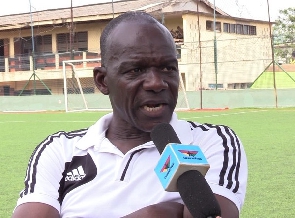Saving a kick from just twelve yards got to be one of the most difficult tasks in football. It is also a moment that goalkeepers get recognition for their brilliance and agility.
Players have different styles of taking kicks and keepers at every point have to make a move to deny them a goal.
Some prefer to drive the ball with power, others pick spots and hit with finesse, some also prefer the more flamboyant style called ‘panenka’.
A keeper has less than a second to decide where and when to dive to save a penalty kick.
A keeper needs about 100 milliseconds to process the kick mentally and another 100 milliseconds to decide where to jump and initiate the muscle movement. In essence, it takes a little over 700 milliseconds for a keeper to dive to a side of goal to attack a goal-bound kick from twelve yards.
It’s a daunting task that require a lot of practice and techniques that only few goalkeepers around the world have mastered.
In the EPL for instance, former Chelsea goalie Dmitri Kharin is regarded as the best penalty saver in history with a success rate of 45.5 percent. He is followed by former Arsenal goalie Manuel Almunia who has 42.9 percent success rate. Interesting to note that none of the current goalkeepers makes the list for the top ten.
In Ghana, Daniel Agyei, Ali Jarrah, Sammy Adjei and the late Robert Mensah are often mentioned as three goalkeepers who mastered the art of saving penalties. Though there is no data to back these claims, it is widely accepted these figures are the country’s top pick for penalty shootouts.
From the period where the player picks up the ball to when he finally kicks it, keepers make quick decisions.
We sat down with a man who has over the years trained goalkeepers including Black Stars goalies to get an insight into the mentality of keepers when it comes to shootouts.
Damba tells us keepers have different methods and techniques of upsetting players about to take penalties.
Damba explains that in the area of penalty shootouts, there are two types of goalkeepers – the proactive and reactive goalkeepers.
The proactive goalkeepers, he says are the one who before a kick, take a keen look at the foot of the player, make eye contact and pick a spot before the taker effects the kick.
The reactive ones take a decision on where to dive after the ball has been kicked. Both approaches he maintains require lot of hard work both physically and mentally.
“Goalkeepers come in different shapes and sizes with different qualities. We have the very reactive type and those who can always react to the situation. There are some goalkeepers who will take a decision depending on which foot that the penalty taker is going to use. He knows that going left or right is better. Every keeper has a better side. You are either better on the left or on the right side.
Damba prefers keepers who are reactive; “I will always advice my goalkeepers to stay and react to the situation. Don’t anticipate because we have most goalkeepers who always want to anticipate the situation and end up going the opposite direction. But penalty takers are always frustrated when you wait and react in the last minute”, he said.
Sports News of Thursday, 17 October 2019
Source: www.ghanaweb.com
Inside the minds of goalkeepers: Damba details how keepers deal with penalties
Entertainment
















